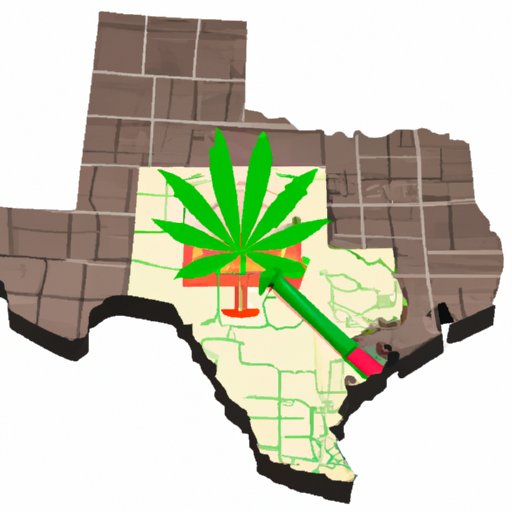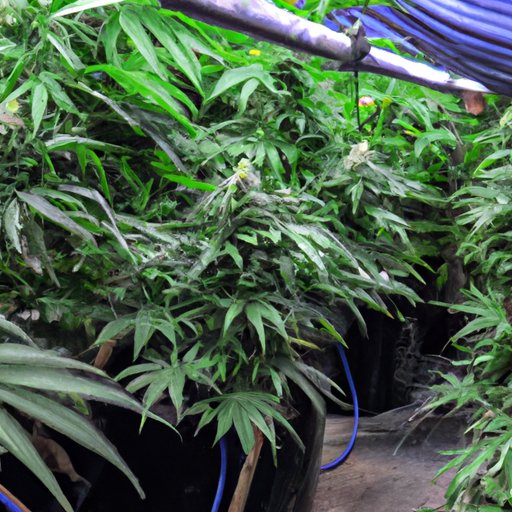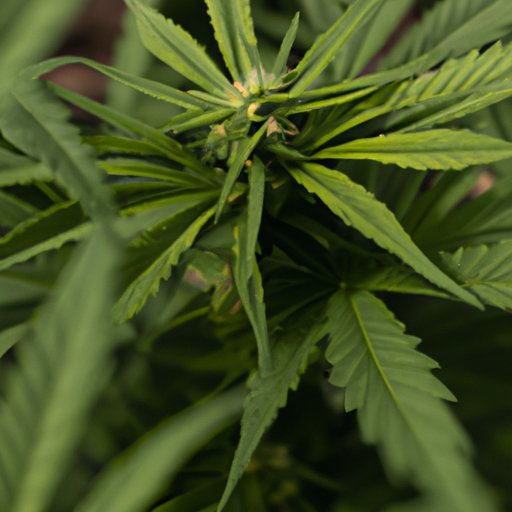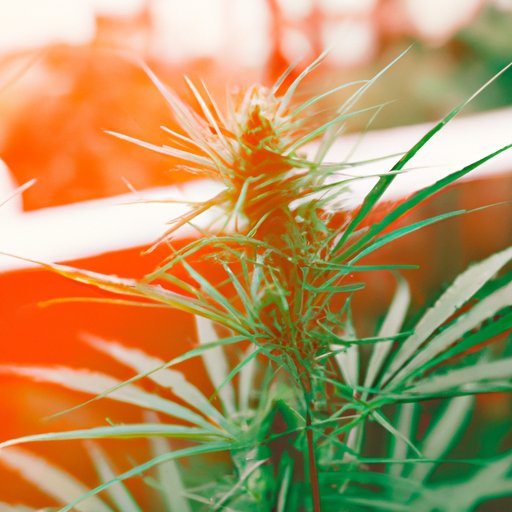Is it Illegal to Grow CBD Plants in Texas?
With more and more states legalizing cannabis for medicinal and recreational purposes, many Texans are wondering about the legality of growing CBD plants in the state. While CBD (cannabidiol) is non-psychoactive and has been shown to have many health benefits, such as reducing anxiety and relieving pain, it is still derived from the cannabis plant, which is classified as a Schedule I drug by the federal government. This classification makes it illegal to cultivate cannabis plants at the federal level. However, some states have legalized the cultivation of cannabis plants for medical and/or recreational use. In this article, we will explore the legality of growing CBD plants in Texas, compare the laws to other states, and discuss the potential consequences and benefits of cultivating CBD plants in Texas.

Current Legislation Regarding the Cultivation of Cannabis Plants in Texas
In 2015, Texas passed the Compassionate Use Act, which legalized the use of low-THC cannabis for medical purposes. This allowed patients with epilepsy to access CBD oil with less than 0.5% THC. However, in order to obtain this oil, patients had to obtain a prescription from a doctor who was registered with the Texas Department of Public Safety. The cultivation of cannabis plants for any purpose, including the production of low-THC CBD oil, was still illegal in Texas.
In 2019, the Texas legislature passed House Bill 1325, which legalized the cultivation of hemp in Texas. Hemp is a strain of the cannabis plant that contains less than 0.3% THC. This bill did not legalize cannabis for marijuana use, but it has made it legal for farmers to grow hemp plants for industrial uses, such as the production of CBD oil. However, in order to legally grow hemp in Texas, farmers must obtain a license from the Texas Department of Agriculture and ensure that their plants contain less than 0.3% THC. Any hemp plants containing more than 0.3% THC are classified as marijuana and are therefore illegal to grow and possess in Texas.
Guidelines for Growing CBD Plants in Texas
For individuals who are interested in growing hemp plants for the production of CBD oil, there are a few guidelines that must be followed. First, the plants must be registered with the Texas Department of Agriculture. Second, the plants must be tested to ensure that they contain less than 0.3% THC. Third, the plants must be grown in compliance with Texas Department of Agriculture rules and regulations.

The Penalties Associated with the Cultivation of Cannabis Plants in Texas
It is important to note that the cultivation of cannabis plants in Texas without a license is still illegal and carries with it significant penalties. Under Texas law, the cultivation of less than two ounces of marijuana is a Class B misdemeanor, which is punishable by up to 180 days in jail and a fine of up to $2,000. The cultivation of two to four ounces of marijuana is a Class A misdemeanor, which is punishable by up to one year in jail and a fine of up to $4,000. The cultivation of more than four ounces of marijuana is a felony, which can result in many years in prison and a fine of up to $50,000.

Texas vs Other States: Growing CBD Plants
While Texas has made some progress in legalizing the production of CBD oil, it still lags behind many other states in terms of cannabis reform. For example, in Colorado and Oregon, adults are allowed to grow up to six cannabis plants for personal use. In California, residents can legally grow up to six cannabis plants per household for medicinal or recreational use. It is important to note that the laws regarding the cultivation of cannabis plants vary widely from state to state, and individuals must be aware of the laws in their own state before attempting to cultivate cannabis plants.
One of the reasons for the discrepancies in cannabis laws between states is the complex interplay between federal and state laws. While some states have legalized marijuana for medical and/or recreational use, it is still classified as a Schedule I drug at the federal level. This makes it difficult for states to implement and enforce their own cannabis laws without fear of federal intervention.
My Experience Growing CBD Plants in Texas
While the cultivation of cannabis plants in Texas without a license is still illegal, some individuals have attempted to grow hemp plants for the production of CBD oil. One such individual, who wishes to remain anonymous, shared their experience with us.
“I started growing hemp plants in my backyard last year to produce CBD oil. I was aware that it was still illegal under Texas law, but I felt that the health benefits of CBD oil outweighed the risks. I made sure to keep my plants hidden and only harvested them when they were mature. I have to say that the process was stressful and nerve-wracking, but the end product was worth it. I still use the CBD oil I produced, and it has been incredibly helpful for my anxiety.”

The Potential Consequences of Growing CBD Plants in Texas
While some individuals may be willing to take the risk of growing hemp plants for the production of CBD oil, it is important to be aware of the potential consequences. As previously mentioned, the penalties for cultivating cannabis plants in Texas without a license can be significant. In addition to the legal consequences, individuals may also face social and employment-related consequences if they are caught growing cannabis plants illegally. It is important to weigh the potential benefits against the risks before deciding to grow hemp plants.
The Benefits of Legalizing CBD Plants in Texas
While the cultivation of cannabis plants is still illegal in Texas, many advocates are pushing for the state to legalize the production of CBD oil. There are many potential benefits of legalizing hemp plants for this purpose, including economic benefits and medical benefits.
One of the main economic benefits of legalizing the cultivation of hemp plants in Texas is the creation of a new industry. Hemp can be used for a variety of industrial purposes, such as the production of paper, textiles, and biofuels. By legalizing the cultivation of hemp, Texas could create new jobs and generate revenue for the state.
Another potential benefit of legalizing the production of CBD oil is the medical benefits it can provide. CBD has been shown to have many health benefits, such as reducing anxiety and relieving pain. Legalizing the cultivation of hemp plants would make it easier for patients to access CBD oil and could potentially improve their quality of life.
Conclusion
In conclusion, it is still illegal to cultivate cannabis plants in Texas without a license. While the production of low-THC CBD oil is legal under certain circumstances, individuals must obtain a prescription from a registered doctor and must ensure that their plants contain less than 0.3% THC. The penalties for growing cannabis plants illegally can be significant, and individuals must weigh the potential benefits against the risks before deciding to grow hemp plants. However, there are many potential benefits to legalizing the cultivation of hemp plants for the production of CBD oil, including economic benefits and medical benefits. It is up to Texas legislators to decide whether or not to legalize the production of CBD oil and create a new industry in the state.
